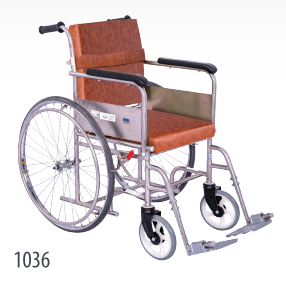According to an estimate by the WHO, globally, 15 percent of the population live with some form of disability.
Learn about the disabilities that require a wheelchair and their categorization.
Disabilities can be categorized as per
- Visual impairment
- Hearing impairment
- Locomotor impairment; Cerebral Palsy
- Mental retardation and Mental illness
- Children with learning disabilities
Mobility impairments require a wheelchair for assisted living. Wheelchair benefits the patient’s mobility; their living conditions are improvised with better quality of life. A well-fitted wheelchair with good support, a backrest, and cushioned seat can reduce further deformities and the progression of diseases in many cases.
Many medical conditions require a wheelchair or assisted living support. Some of the health conditions which affect the person’s motor ability are:
Neurological Conditions: Neurological disabilities include a wide range of disorders, such as epilepsy, neuromuscular disorders, ADD, brain tumors, and cerebral palsy.
Acute Spinal cord Injury: It is due to a traumatic injury that bruises, partially tears, or completely tears the spinal cord. SCI is a common cause of permanent disability and death in children and adults. Spinal cord injuries lead to different types of impairment. An injury to the lumbar vertebrae, may affect nerve and muscle control in the bladder, bowel, and legs leading to Quadriplegia (loss of function in the arms and legs) & Paraplegia (loss of function in the legs and lower body).
Alzheimer’s Disease: As per the National Institute of Neurological Disorders and Stroke, the disease is a progressive, neurodegenerative disease that occurs when nerve cells in the brain die. The condition leads to memory loss and difficulty performing tasks ultimately leading to a need for wheelchair assistance with full-time care.
Amyotrophic lateral sclerosis: It is a motor neuron disease that affects the nerve cells in the spinal cord and brain. Loss of motor control in hands and legs leads to the need for a wheelchair.
Ataxia: It makes the patient lose muscle control in the arms and legs. Lack of balance and trouble walking involves using a wheelchair for the much possible independence.
Multiple Sclerosis causes the body’s immune system to attack the central nervous system. A person may lose their ability to speak or walk as the communication between the brain and other parts are hindered. Muscle spasms, loss of coordination, dizziness, and attention deficit require the use of a wheelchair to help make daily tasks manageable.
Muscular Dystrophy: The condition slowly weakens muscles which cause breakdown and deposits of fatty tissue. The condition leads to deformities in joints making the use of a wheelchair mandatory.
Cerebral Palsy: It is a neurological condition caused by problems in the brain and nervous system. The condition can occur if the brain develops abnormally or is damaged before, during, or shortly after birth. The child faces developmental issues in walking, speaking, and crawling.
Parkinson’s Disease: It is a neurodegenerative disease that gradually strips away motor abilities leaving people with a slow and awkward gait, rigid limbs, tremors, shuffling, and a lack of balance.
Scoliosis: The condition is developed because of muscular dystrophy or cerebral palsy. It causes abnormal curvature of the spine. Some cases require a wheelchair due to extreme deformities.
Rheumatoid Arthritis: It is an auto-immune disease, that causes inflammation in the body. The immune system attacks healthy joint tissue. It is a progressive disease where the joints are affected by pain. The patient feels fatigued and daily tasks take a hit. Assistive care for mobility, comfort, and independence is a must.
Spina Bifida: Spina Bifida is defined as a neural tube defect (NTD) that results when the inferior neuropore does not close. It is a birth defect where the neural tube fails to develop in early pregnancy. Children with this condition have difficulty with mobility, altered sensation, tonal changes, and balance issues.
Amputations: A fatal injury or infection which requires amputation of any limb or part of it requires a wheelchair to stay mobile. Few cases require artificial limbs or wheelchair assistance.
According to WHO almost everyone will temporarily or permanently experience disability at some point in their life. An estimated 1.3 billion people – about 16% of the global population – currently experience significant disabilities. These chronic conditions affect the way of life. Wheelchair provides assisted living reducing the effects of various condition and delaying the effects of fatality. A life with dignity and independence for the patient is their right and a wheelchair helps to achieve it.
If you know someone who has been affected by the above-mentioned conditions, please get in touch with Midmark India to help you with wheelchairs.

